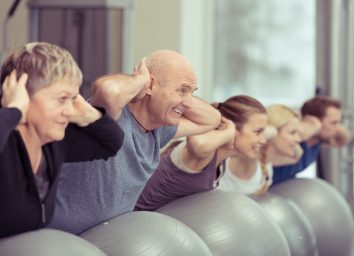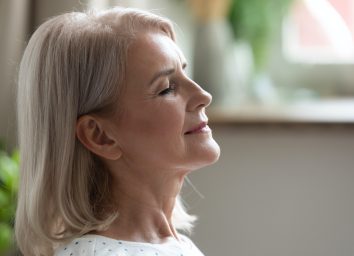The Best Exercises You Can Possibly Do After Menopause, Say Experts

You might know it as "The Big M" or "The Change." But whatever you call it, the reality is that menopause, aka the permanent end of a woman's menstrual cycle, is a big biological upheaval. Thanks to significant hormonal changes, menopausal women can lose bone mass, gain weight, experience hot flashes and night sweats, and more. These changes can be stressful and may impact a person's ability to sleep or go about their day-to-day.
There are lots of ways to manage the changes that menopause brings, including exercise. During and after menopause, exercise can support mobility, bone and muscle health, and mental well-being.
However, it's important for people to factor in the new realities of their body when creating an exercise plan. For example, your bones likely are more delicate, making HIIT and other intense cardio exercises less safe or appealing. "Heating and cooling is often an issue for menopausal women," adds Jeannette DePatie, a certified trainer and senior exercise specialist—making exercise less pleasant and more difficult for some.
"The most important thing as always with exercise is having fun," says DePatie. "Menopause brings with it a lot of challenges and a lot of stress. This is a great time for women to focus on what helps manage stress, what feels good, and having a good time."
There aren't a ton of conclusive studies out there that show certain exercises are best at managing certain menopause symptoms, DePatie says. However, there are lots of exercises that can help best support your body's needs during this time. Check out what the best exercises for menopause are below. (And for more menopause intel, check out The Best and Worst Foods for Women Over 50.)
Strength training
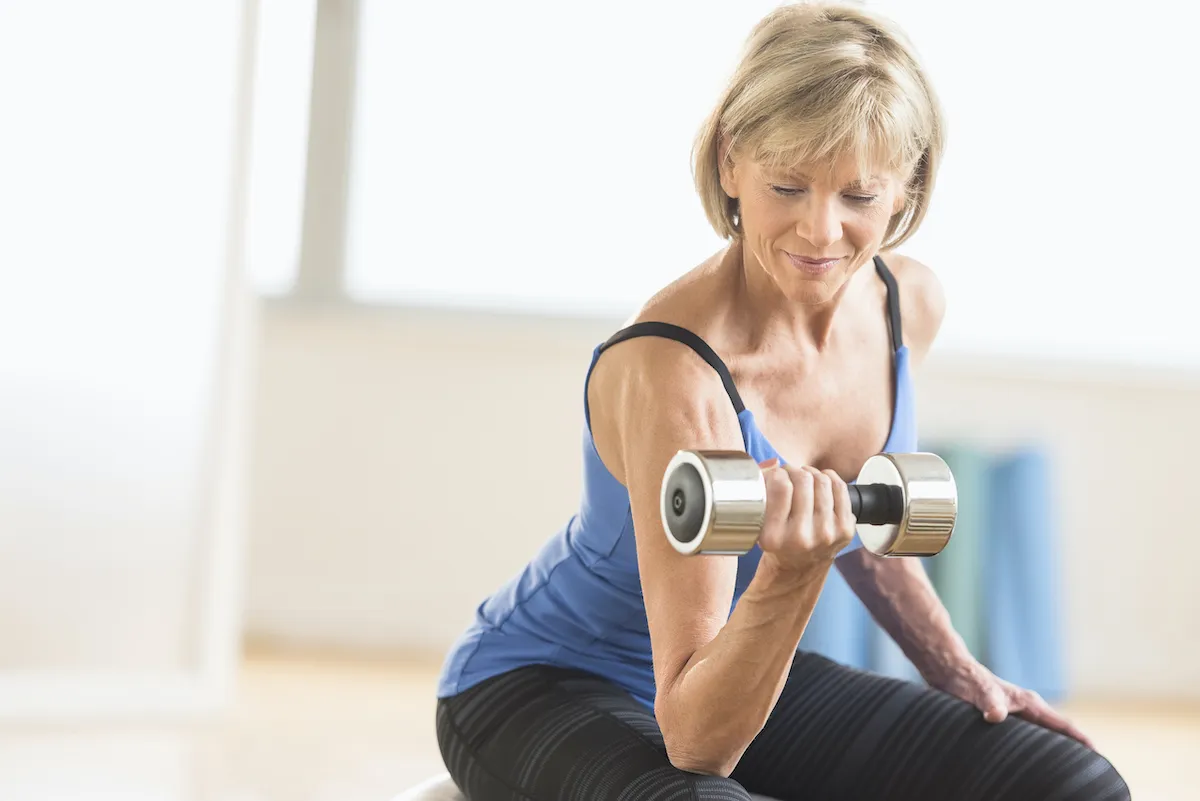
Strength training is crucial for women during menopause. That's because post-menopausal women have an increased risk of osteoporosis, where bones become brittle and weak. "The more muscle you build, the stronger your bones, joints, and overall body," explains Tami Smith, an ACE personal trainer and owner of Fit Healthy Momma.
You don't have to become a powerlifter to see benefits, either. "Simply walking by holding lightweight dumbbells will do the job," says Hannah Shine, certified personal trainer and health manager at HourGlass Waist in Australia. Other great options include bodyweight exercises, resistance training, and light weight lifting. And don't forget to read Secret Tricks for Getting a Lean Body After 50, Say Experts.
Walking or jogging
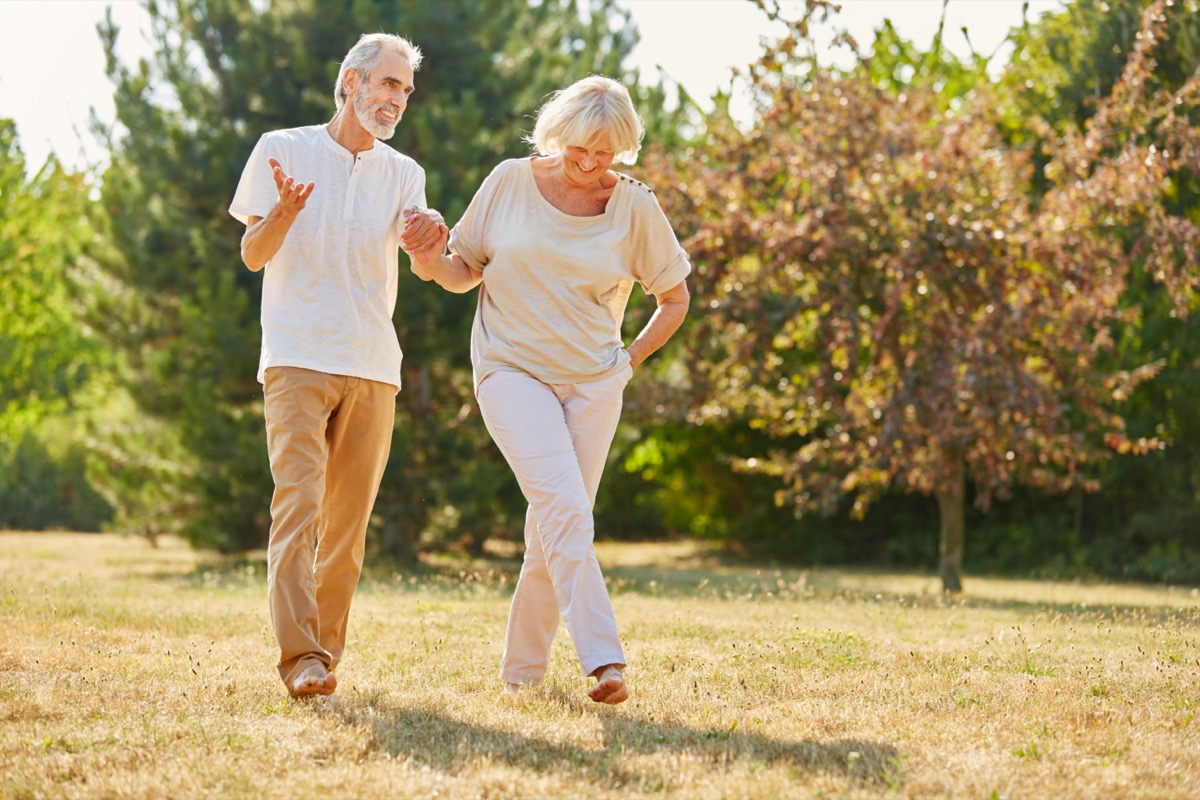
Aerobic exercise is important at any age. But post-menopause, when your bones and joints are a bit more fragile, Smith says you want to opt for low-intensity cardio to get your heart pumping. Her favorites are walking and light jogging, as well as cycling, and rowing. Shine adds that cardio exercises can help support healthy weight management, which can be challenging for menopausal women since their metabolism slows down. For more intel on walking, don't miss Secret Tricks for Walking for Exercise, According to Walking Specialists.
Swimming
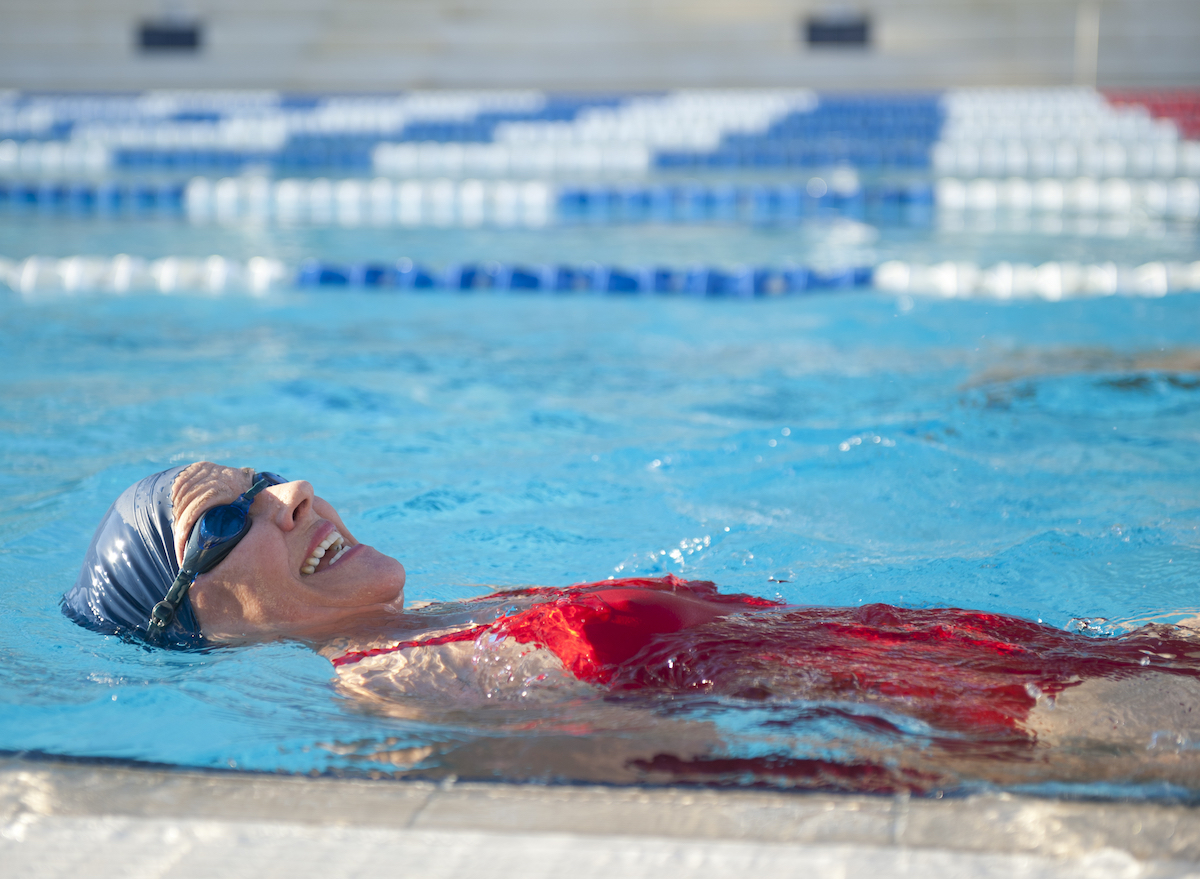
If you have joint troubles (or just love the water!), Shine says swimming is another great aerobic exercise for menopausal women. It's a low-impact workout, meaning it's gentle on bones and joints, and it can help support healthy weight management and heart health. It also works your brain since it requires concentration and coordination.
However, DePatie says swimming shouldn't be your only cardio. Because of the afore-mentioned bone problems that often come with menopause, DePatie advises that at least some of your cardio is "weight bearing" (think jogging and walking, where you're holding up your weight) rather than just non-weight bearing like swimming. She says this will help further strengthen and build bones.
Yoga
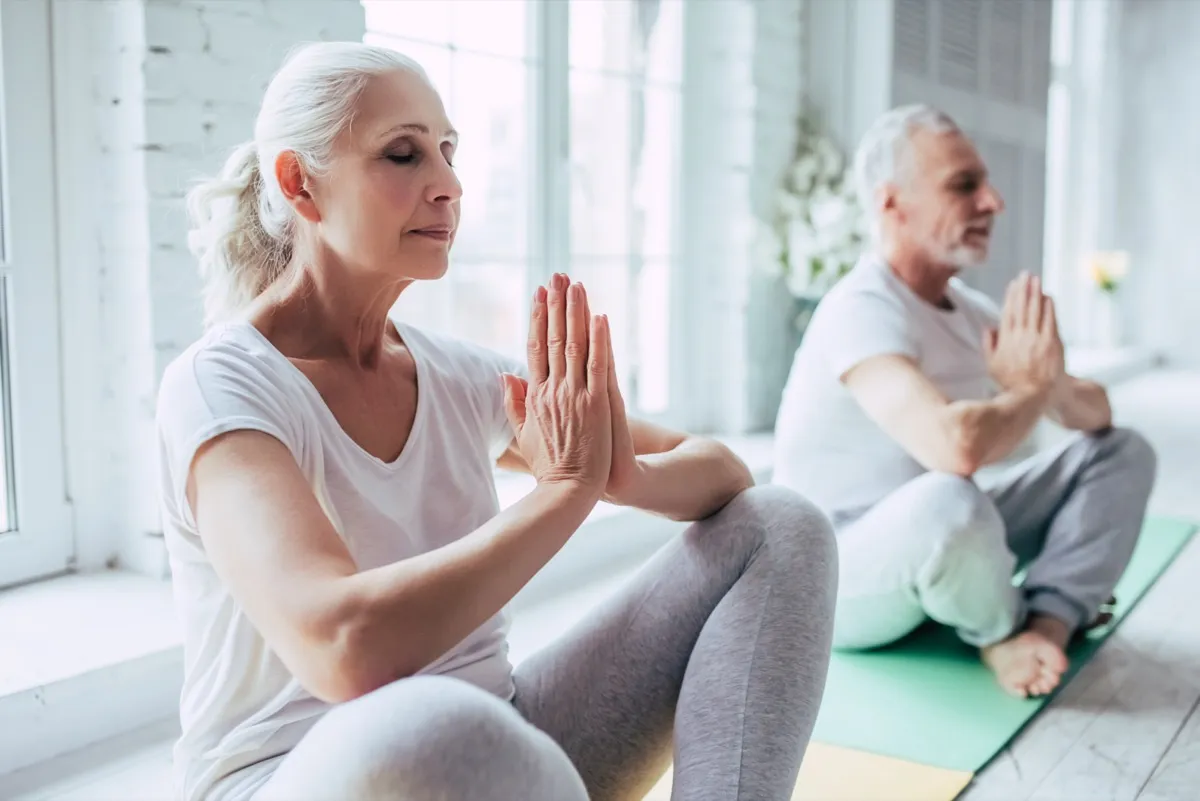
The ancient practice of yoga is beloved for its extensive mind-body benefits. It can help support the health of menopausal women, too. A 2010 review in Journal of Midlife Health found that yoga can help reduce certain menopause symptoms like hot flashes; it can also reduce the risk of cardiovascular disease in older women. A 2012 study in Evidence-Based Complementary and Alternative Medicine found some evidence that yoga can help manage feelings of depression and anxiety in menopausal women. Plus regardless of age, yoga can help reduce stress, boost energy and mood, and support heart health. And don't miss One Incredible Side Effect of Doing Yoga, Says New Study.
